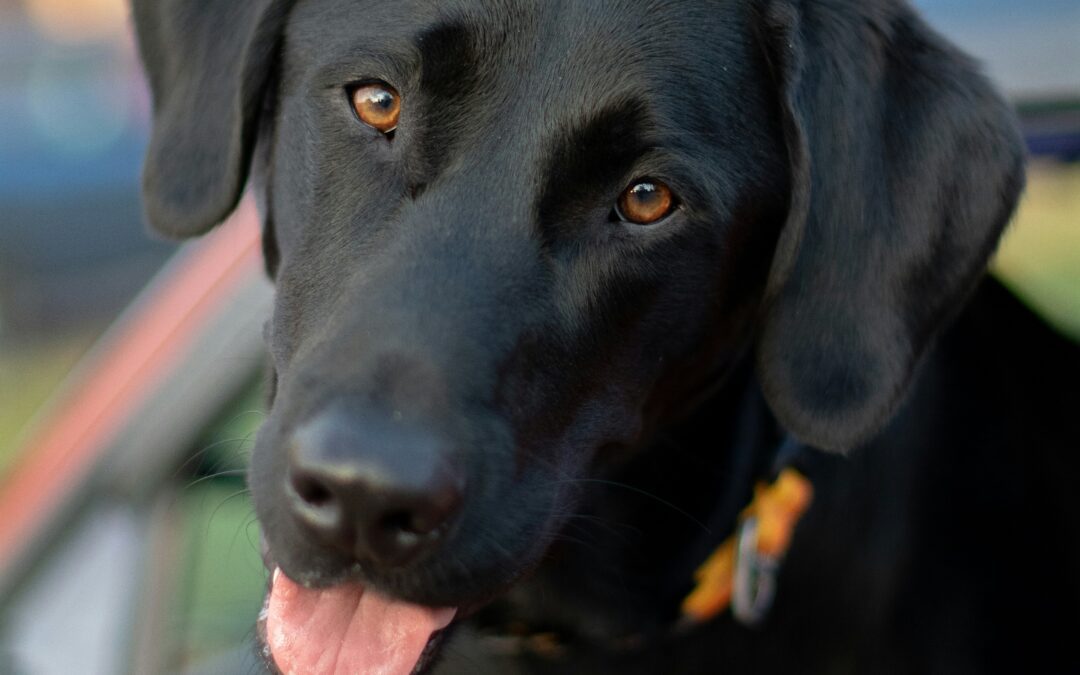Every year on October 1st, dog lovers across the country join together to celebrate National Black Dog Day — a day dedicated to recognizing, honoring, and promoting the adoption of black dogs, which often get overlooked in shelters.
At Animal Works Veterinary Surgery, we want to take this opportunity to spotlight these beautiful animals, bust myths about black-dog stigma, and help you provide the best care to your dark-coated companion.
Why National Black Dog Day Matters
- “Black dog syndrome.” Sadly, black-coated dogs are more likely to spend longer in shelters and get passed over for adoption—despite often having wonderful temperaments and being just as loving, loyal, and fun as any other dog.
- Visibility & myths. Some people avoid black dogs because they think they photograph poorly, look “less friendly,” or are harder to see at night. These beliefs are misconceptions, and they shouldn’t stand between a loving family and a deserving pet.
- Awareness & advocacy. National Black Dog Day encourages shelters, rescues, and individuals to give black dogs extra visibility — via social media campaigns, adoption fee discounts, spotlight features, and more.
Tips for Caring for Your Black-Coated Dog
If you already have a black dog — or are considering adopting one — here are a few practical care tips to help them thrive:
1. Skin & coat health
- Use gentle, color-safe shampoos to maintain a shiny, healthy coat.
- Since darker coats can hide skin issues more easily, do regular checks for lumps, bumps, fleas, ticks, or redness.
- Consider grooming or brushing regularly to remove dust and debris that might blend in.
2. Visibility & safety
- At dusk, night, or in low light, a black dog can be harder to spot. Use reflective collars, LED lights, or bright-colored gear for walks.
- In snowy Colorado landscapes, contrast can help — bright accessories help your pup stand out against light or dark surroundings.
3. Temperature considerations
- Black absorbs more heat in direct sunlight. During hot months, monitor your dog carefully, provide shade, and limit time outside during peak sun.
- In winter, their dark coat can help absorb warmth—but always ensure they are protected from freezing temperatures.
4. Training & socialization
- Like any dog, early socialization and positive reinforcement training are key to a confident, mentally healthy companion.
- Use treats, praise, and consistent routines to build trust and responsiveness.
How You Can Help—Especially in Fort Collins
- Adopt (don’t shop). Check local shelters and rescue organizations around Fort Collins and northern Colorado for black dogs that need homes.
- Volunteer or foster. Shelters often need help caring for and promoting black dogs to increase their visibility.
- Promote — use your voice. Share photos, stories, or profiles of black dogs on social media using hashtags like #NationalBlackDogDay, #BlackDogAwareness, or #AdoptDontShop.
- Offer support or donations. Many animal welfare groups rely on community support to cover veterinary care, training, or supplies.
Veterinary Tips from Animal Works
Watch for dental disease beyond bad breath. Infections in the mouth don’t just cause discomfort — they can also complicate anesthesia and surgical procedures. Regular cleanings and dental exams help us keep your dog safe if surgery is ever needed.
Pay attention to weight management. Extra pounds can put significant stress on joints and increase the risk of orthopedic problems like hip dysplasia or CCL injuries. Keeping your dog at a healthy weight not only reduces the need for surgery but also helps them recover more smoothly if a procedure is required.
Plan ahead for spay or neuter surgery. These procedures are routine but still important surgeries. Talk with your veterinarian about the best timing for your dog’s breed, size, and lifestyle. Proper timing can reduce the risk of certain cancers and help prevent unwanted litters.
Have new lumps or bumps evaluated quickly. Black fur can make it harder to spot skin growths, but early detection is key. Not all masses are serious, but some may require surgical removal or biopsy. Catching them early often leads to better outcomes and less invasive procedures.
Final Thoughts
Black dogs have the same big hearts and playful spirits as any other pup. This National Black Dog Day, let’s take a moment to appreciate them, share a little extra love, and celebrate the joy they bring to families.

